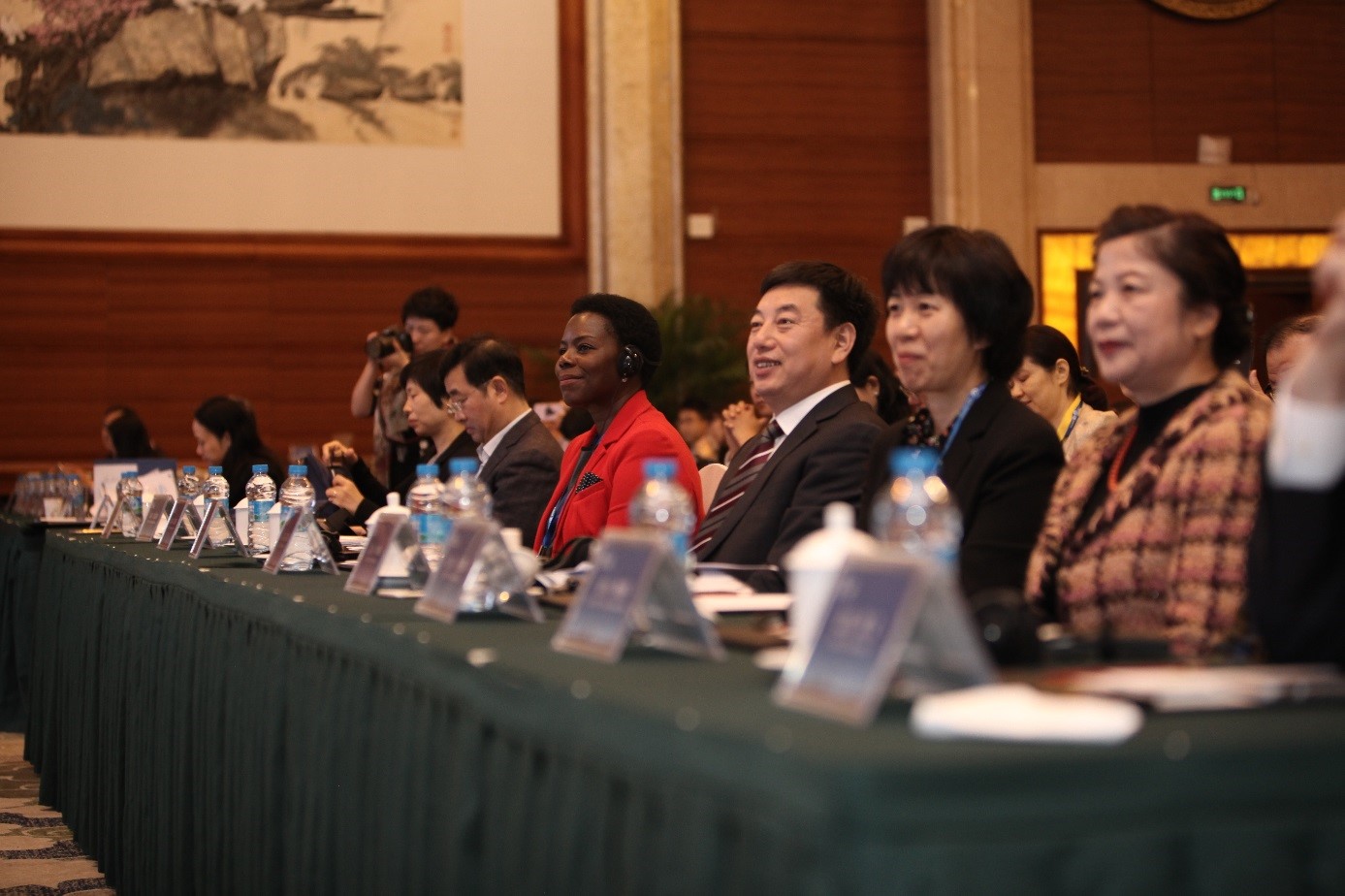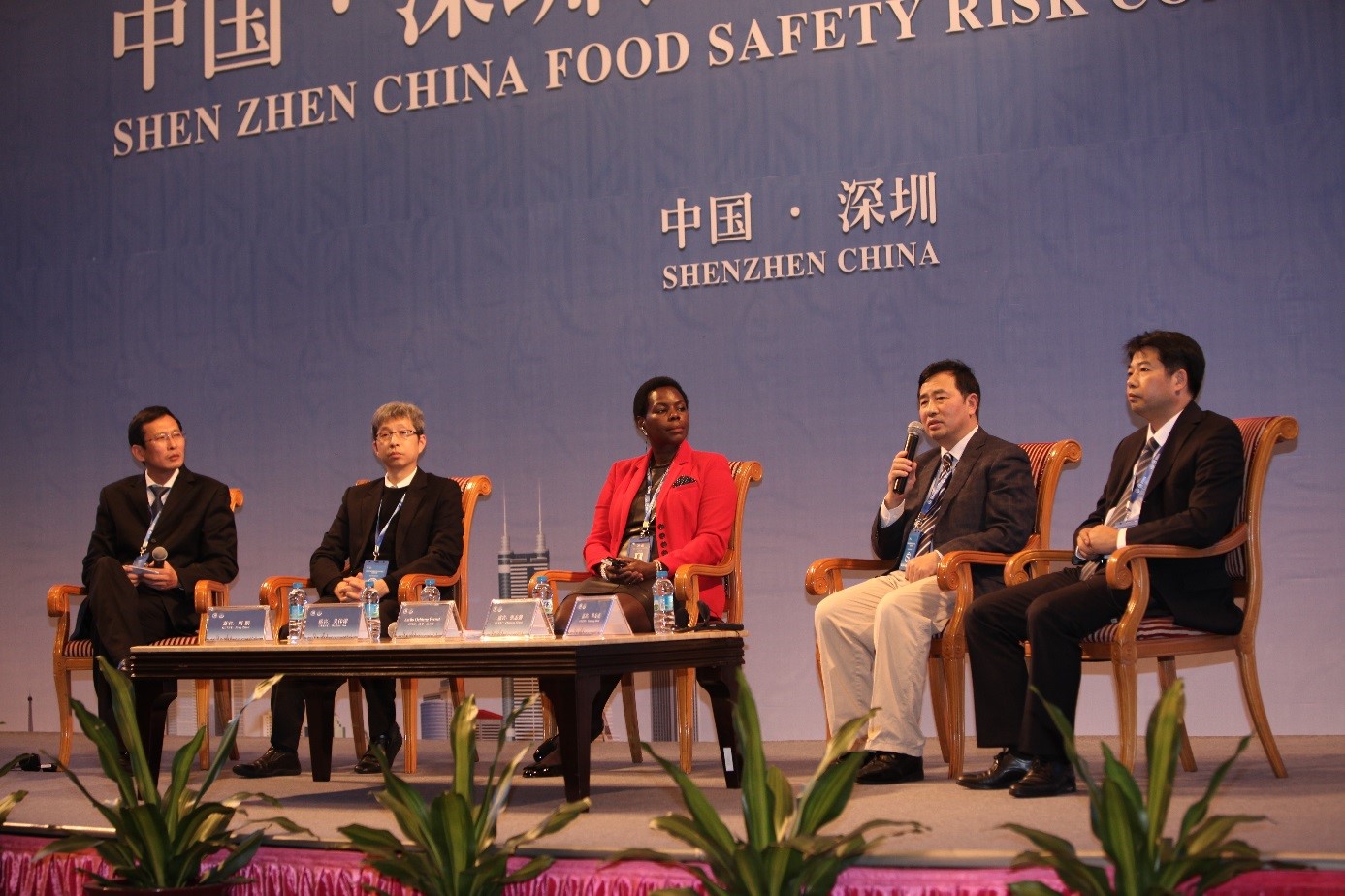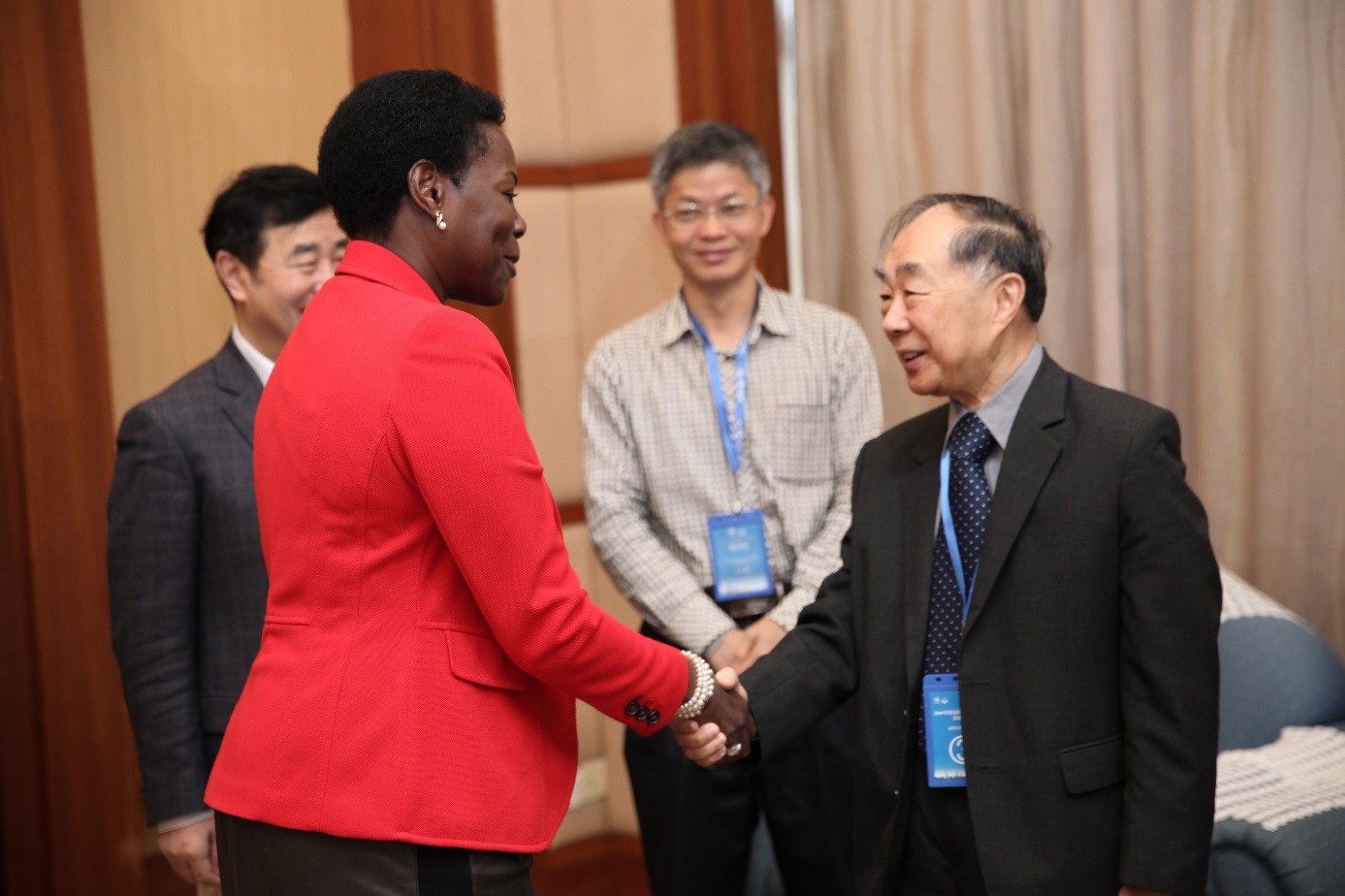Risk communication vital for food safety
The Codex Chairperson, Mrs Awilo Ochieng Pernet, attended the Shenzhen China Food Safety Risk Communication Conference which took place in Shenzhen, China on 28th and 29th November 2016.

Hosted by the Shenzhen Food Safety Commission Office, the Food and Drug Administration of Shenzhen Municipality and organised by the Shenzhen Institute of Standards and Technology (SIST), the Food Safety Risk Communication Conference was attended by more than 400 participants representing stakeholders from relevant sectors including government officials, industry, consumer organisations and academia.
Food safety and quality collaboration
Mr Yuyue Gao, Deputy Secretary of the Shenzhen Municipal Government, Prof. Junshi Chen, Chairperson of the Codex Committee on Food Additives and Dr Xiaoxi Du, Deputy Director, China Food and Drug Administration officiated at the Opening Ceremony. On this occasion, an agreement was signed by the Hong Kong and Shenzhen food safety authorities in order to foster food safety and quality collaboration.
Food Safety for Consumer Protection and International Trade
In her presentation entitled “The Importance of Food Safety for Consumer Protection and International Trade” the Codex Chairperson stressed the importance of effectively implementing and enforcing Codex standards as part of the holistic food chain approach in order to protect the health of consumers and ensure fair practices in the food trade.

Risk analysis and scientific advice in Codex
Mrs Ochieng Pernet also highlighted the importance of risk analysis principles and scientific advice in the development of Codex food safety standards. Noting the importance of engaging with all relevant stakeholders within the risk analysis process as outlined in the Codex Working Principles for Risk Analysis, the Codex Chairperson commended the very active participation of consumer representatives at the Conference.
In the ensuing discussions, Mrs Ochieng Pernet responded to participants’ questions about the relationship between Codex standards and the WTO SPS and TBT Agreements, on the important current and emerging food safety issues identified by the various FAO/WHO Regional Coordinating Committees.
The Codex Chairperson also participated in a Panel discussion chaired by Mr Peng Zhou, Vice-President of the SIST who is also a regular delegate at Codex meetings.
It is critically important to communicate effectively on food safety to prevent foodborne diseases and to ensure safe and nutritious food for all.

In her concluding remarks, the Codex Chairperson congratulated the organisers on the excellent staging of the Shenzhen China Food Safety Risk Communication Conference noting that it was timely due to the critical importance of communicating effectively and raising awareness about food safety in order to prevent foodborne diseases and to ensure safe and nutritious food for all.
The Codex Chairperson requested the organisers to consider inviting speakers and participants from different Codex regions to attend future Shenzhen China Food Safety Risk Communication Conferences in order to share experiences and best practices and to learn from each other.
The Codex Chairperson also met with SIST staff members on the margins of the Conference in order to discuss their food safety risk communication strategy and activities. Mrs Ochieng Pernet shared with them experiences from various Codex member countries including her recent discussions with the Communication’s team from the Chilean Agency ACHIPIA.
Link
The Shenzhen Institute of Standards and Technology http://www.sist.org.cn/
At the heart of the Codex mandate are the core values of collaboration, inclusiveness, consensus building and transparency. Governmental and non-governmental, public and private organizations alike play a vital role in ensuring Codex texts are of the highest quality and based on sound science.
Codex would have little authority in the field of international standard setting if it did not welcome and acknowledge the valuable contributions made by observers. Expert technical bodies, industry and consumer associations
contribute to the standard-setting process in a spirit of openness, collaboration and transparency.
Intergovernmental organizations (IGOs) and international non-governmental organizations (NGOs) can apply for observer status in Codex in order to attend and put forward their views at every stage of the standard-setting process.
 Current Codex Alimentarius Commission
Current Codex Alimentarius Commission
Risk communication vital for food safety
The Codex Chairperson, Mrs Awilo Ochieng Pernet, attended the Shenzhen China Food Safety Risk Communication Conference which took place in Shenzhen, China on 28th and 29th November 2016.

Hosted by the Shenzhen Food Safety Commission Office, the Food and Drug Administration of Shenzhen Municipality and organised by the Shenzhen Institute of Standards and Technology (SIST), the Food Safety Risk Communication Conference was attended by more than 400 participants representing stakeholders from relevant sectors including government officials, industry, consumer organisations and academia.
Food safety and quality collaboration
Mr Yuyue Gao, Deputy Secretary of the Shenzhen Municipal Government, Prof. Junshi Chen, Chairperson of the Codex Committee on Food Additives and Dr Xiaoxi Du, Deputy Director, China Food and Drug Administration officiated at the Opening Ceremony. On this occasion, an agreement was signed by the Hong Kong and Shenzhen food safety authorities in order to foster food safety and quality collaboration.
Food Safety for Consumer Protection and International Trade
In her presentation entitled “The Importance of Food Safety for Consumer Protection and International Trade” the Codex Chairperson stressed the importance of effectively implementing and enforcing Codex standards as part of the holistic food chain approach in order to protect the health of consumers and ensure fair practices in the food trade.

Risk analysis and scientific advice in Codex
Mrs Ochieng Pernet also highlighted the importance of risk analysis principles and scientific advice in the development of Codex food safety standards. Noting the importance of engaging with all relevant stakeholders within the risk analysis process as outlined in the Codex Working Principles for Risk Analysis, the Codex Chairperson commended the very active participation of consumer representatives at the Conference.
In the ensuing discussions, Mrs Ochieng Pernet responded to participants’ questions about the relationship between Codex standards and the WTO SPS and TBT Agreements, on the important current and emerging food safety issues identified by the various FAO/WHO Regional Coordinating Committees.
The Codex Chairperson also participated in a Panel discussion chaired by Mr Peng Zhou, Vice-President of the SIST who is also a regular delegate at Codex meetings.
It is critically important to communicate effectively on food safety to prevent foodborne diseases and to ensure safe and nutritious food for all.

In her concluding remarks, the Codex Chairperson congratulated the organisers on the excellent staging of the Shenzhen China Food Safety Risk Communication Conference noting that it was timely due to the critical importance of communicating effectively and raising awareness about food safety in order to prevent foodborne diseases and to ensure safe and nutritious food for all.
The Codex Chairperson requested the organisers to consider inviting speakers and participants from different Codex regions to attend future Shenzhen China Food Safety Risk Communication Conferences in order to share experiences and best practices and to learn from each other.
The Codex Chairperson also met with SIST staff members on the margins of the Conference in order to discuss their food safety risk communication strategy and activities. Mrs Ochieng Pernet shared with them experiences from various Codex member countries including her recent discussions with the Communication’s team from the Chilean Agency ACHIPIA.
Link
The Shenzhen Institute of Standards and Technology http://www.sist.org.cn/
 Codex and Observer
Codex and Observer
around the world since ancient times.
We might not always know where it comes from,
but we expect it to be available, safe and of good quality.










Leave a comment